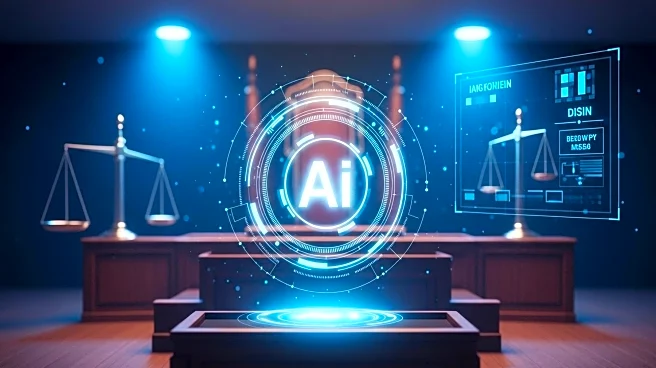What's Happening?
The American Arbitration Association (AAA) is set to launch an AI-powered arbitrator in November, initially for documents-only construction defect cases. This development marks a significant step towards integrating AI in legal decision-making processes. The AI arbitrator is expected to reduce litigation costs by 30-50% and time by 25-35%. While some litigators express skepticism about AI's role in litigation, the potential for AI to handle low-exposure cases efficiently is gaining attention. The AAA's initiative follows similar uses of AI in dispute resolution, such as eBay's AI bot for buyer-seller disputes.
Why It's Important?
The introduction of AI in arbitration could revolutionize the legal industry by making dispute resolution more cost-effective and efficient. For businesses and insurance companies, AI offers a way to handle low-value cases without incurring high legal fees. This shift could lead to broader acceptance of AI in legal processes, potentially transforming how disputes are resolved. However, it also raises questions about the role of human judgment and the need for regulatory frameworks to ensure fairness and transparency.
Beyond the Headlines
The use of AI in arbitration highlights the need for careful consideration of ethical and legal implications. Issues such as bias, transparency, and accountability must be addressed to ensure AI tools are used responsibly. Additionally, the potential for AI to replace human decision-makers in certain contexts may impact the legal profession, requiring adaptation and new skill sets for legal practitioners.








